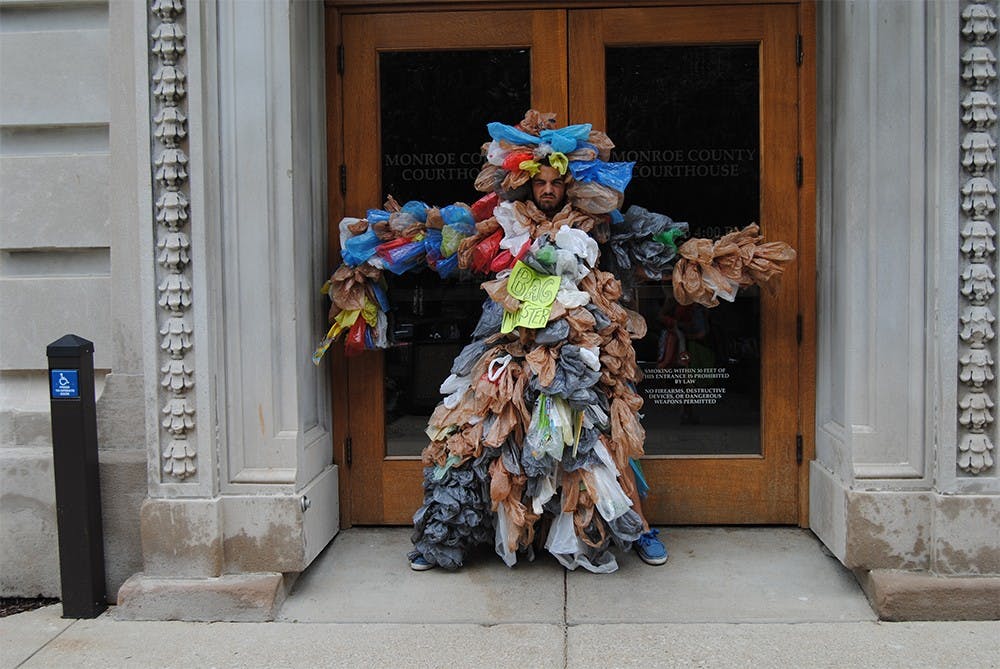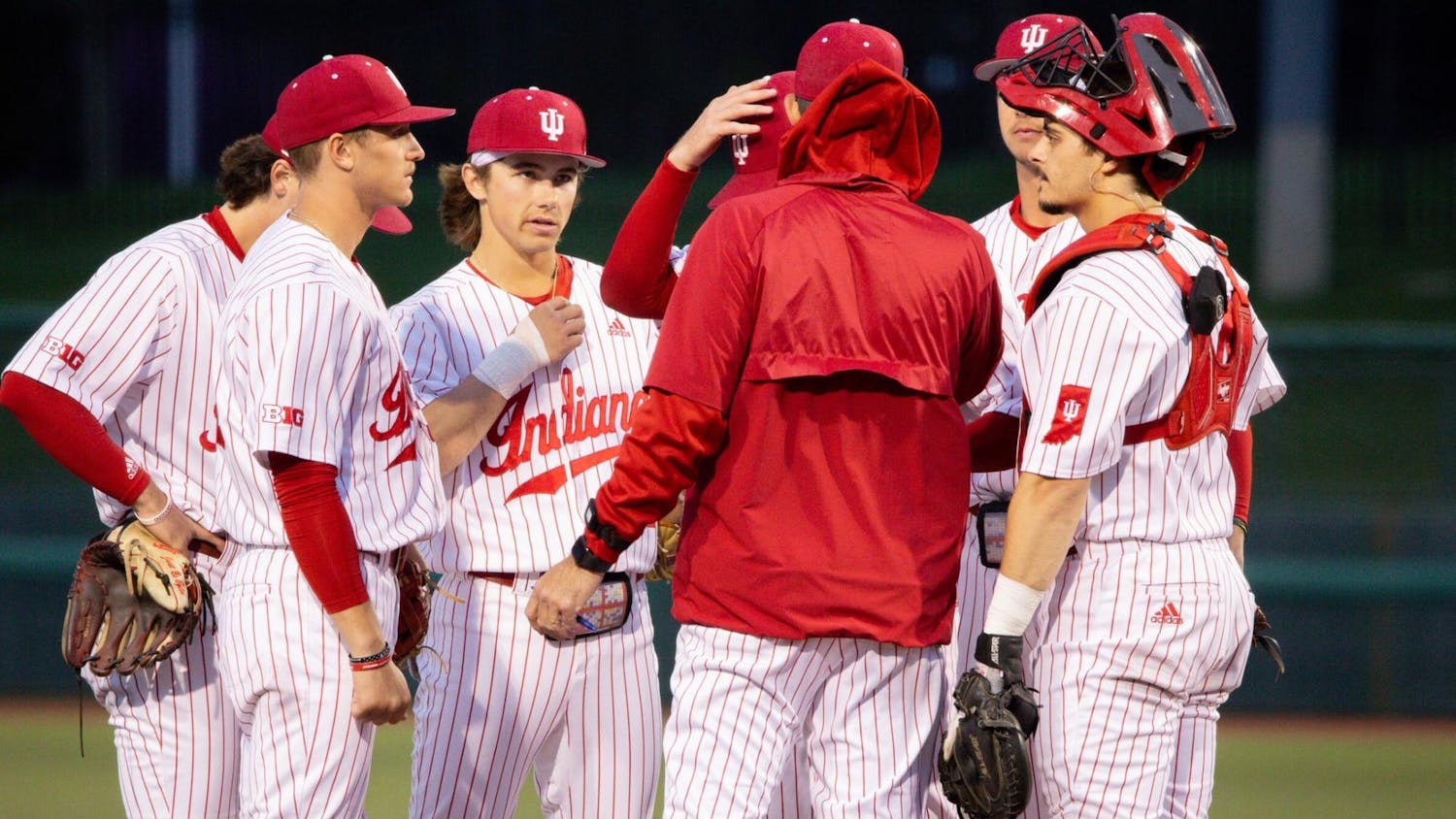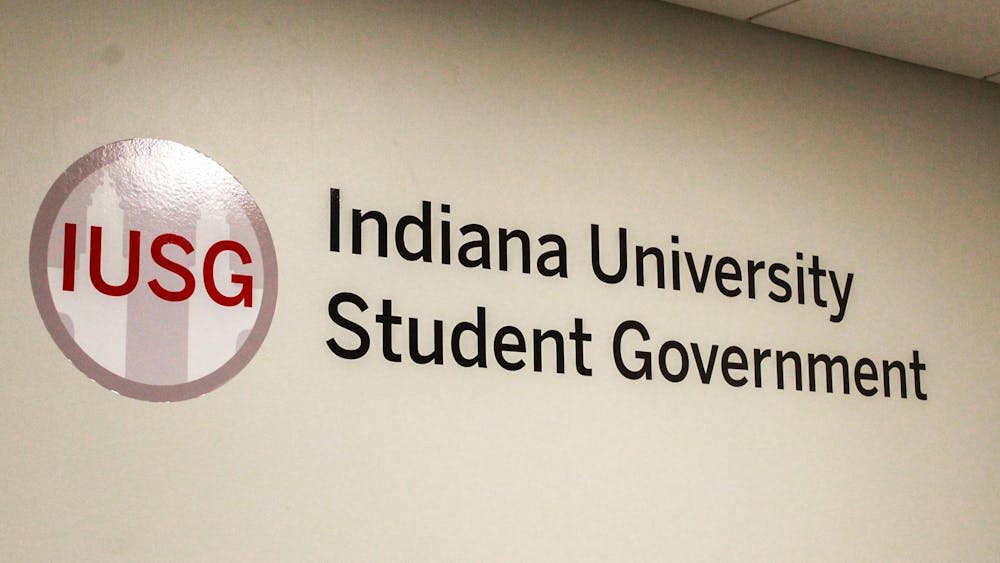She said she was concerned about the environmental effect and had brought her own reusable bags. However, when her young daughter distracted her for the briefest moment, the cashier stuffed half of her items into the non-biodegradable, one-use packaging before she had a chance to protest.
“I absolutely hate those plastic bags,” Swanson said. “I have to work so hard to not bring them into my own home, and I just feel like it shouldn’t be that difficult.”
In order to make plastic bags less unavoidable, Swanson joined Bring Your Bag Bloomington last January.
The diverse set of concerned citizens, which includes IU students, meets a couple of times each month and works to educate the community about the negative effects of plastic bags.
“It’s a nonrenewable energy source, and it has this really absurd life cycle,” Swanson said, noting the average person throws away a plastic bag about 12 minutes after bringing it into his or her home. “The energy used to produce it and ship it and then distribute it to you has a major environmental impact.”
BYBB members host bag-making workshops where they create their own reusable bags out of things like T-shirts and old curtains.
They have also visited schools and used other outreach methods to educate the Bloomington community about these negative effects. They even created the bag monster, who roams around Bloomington in a giant outfit made of 500 plastic bags — the estimated average number of bags each family uses in a year.
Even with all this, they said they felt the use of these unnecessary sacks in the Bloomington community has not declined at a fast-enough rate.
Recently, they created an ordinance that could change the way people in Bloomington carry their groceries.
Should the ordinance be approved by City Council, it would require all single-use plastic bags cost shoppers an extra 15 cents each for a year after enactment. A single-use plastic bag is defined as a bag that is less than 2.25 millimeters thick.
The ordinance would also require all paper bags be made out of 40-percent post-consumer waste.
There would be exceptions to the rule, like for take-out at restaurants and purchases at liquor stores. Swanson emphasized the retailers would keep the extra money, so it is not a government tax.
She also said the group would be handing out free reusable bags for people concerned about the additional cost.
During the ordinance’s second year, all retail establishments would charge 15 cents for all types of paper and plastic bags, and the ordinance would implement an all-out ban on one-use shopping bags in its third year.
“Our research has shown us that, when you actually have an ordinance to reduce plastic bags, it’s very effective,” Swanson said. “We’re proposing the ordinance because, right now, people just aren’t making the choice. Sometimes they need this little reminder.”
Though many other cities in America and some states have taken this same approach, Bloomington would be the first city in Indiana to have a ban on one-use bags.
Before actually submitting the ordinance to City Council, BYBB is attempting to educate the community about the importance of the conservation measure so as not to blindside locals with the changes. Swanson said the group wants citizens to be excited about the progress.
Swanson said she hoped anyone who opposes the ordinance discusses their objections with the group members and researches how similar ordinances have been used all over the world.
“I hate to have other countries look at us and be like, ‘Oh, those Americans,’” Swanson said. “It’s like living up to those stereotypes that we’re not sustainable, we don’t think about the future, that we’re all about convenience. I think it’s time we move away from that.”






